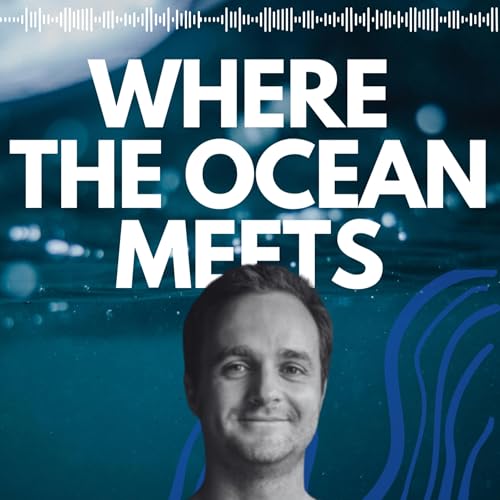When It's Never Too Late - Lena Kemna's Journey from Student to Big Wave Surfer
Episode Description
"It's too late." How many times have you heard those words? Most of us accept these limits and settle into the lives we think we're supposed to have. But what happens when someone completely rewrites the rules?
Meet Lena Kemna - a woman who picked up her first surfboard at 24 while deep in her studies. Just a few years later, she's paddling out at Nazaré, Portugal, facing waves that tower eight stories high. This isn't just about learning to surf late in life. It's about discovering a passion so powerful it forces you to question everything you thought you knew about yourself.
In this candid conversation, Lena shares the real story behind her extraordinary journey - from that first chaotic surf lesson in Fuerteventura to competing in big wave competitions. This is a story about not listening to what common sense tells you, and proving that you can have it all if you define what your "all" is.
What You'll Learn
- Why starting surfing at 24 might actually be an advantage for big wave surfing
- The mental approach that keeps Lena safe in 20+ foot waves
- How she balances a PhD in marketing with professional big wave surfing
- The reality of surf culture and localism in Portugal and Germany
- Why she's "not an adrenaline junkie" despite surfing massive waves
- The importance of intuition and preparation in extreme sports
- How to navigate toxic environments while pursuing your passion
Key Topics Discussed
- That pivotal wave in Bali that changed everything
- Moving to Portugal and organizing life around the ocean
- The difference between paddle surfing and tow-in surfing at Nazaré
- Dealing with jet ski chaos and the big wave community
- Taking a break from surfing due to toxic culture
- The rediscovery of love for the sport in Madeira
- Balancing academic life with professional surfing
- Managing finances as an extreme athlete
- Her approach to sponsors and staying true to values
About Lena Kemna
Lena Kemna is a professional big wave surfer and PhD candidate in marketing who started surfing at 24. She now surfes at among others Nazaré, Portugal, one of the world's most famous big wave spots. She's also an accomplished freediver and advocates for authentic representation in extreme sports. Based in Portugal, she's building toward creating her own big wave team.
Memorable Quotes from the Episode
- "I'm quite German about it" - on her all-or-nothing approach to pursuits
- "It was survival... just being out there in the power of the ocean, I think that kind of hooked me"
- "For me it wasn't a hard decision, it was a very clear decision that I was like, it's the only way I want my life to revolve around the ocean"
- "I like to do it kind of inside of my comfort zone... I'm not a crazy adrenaline junkie"
- "If you go into a meeting room with the board of directors, it's never going to be as scary as a 24-foot wave behind it"
- "There is no window" - on when it's too late to pursue dreams
- "If I'm not having fun, I can just go home"
Resources Mentioned
- Nazaré, Portugal - legendary big wave surfing spot
- Ericeira, Portugal - where Lena does most of her surfing
- Madeira - where she rediscovered her love for surfing
- The importance of apnea training for big wave surfing
Connect with Lena
@lena.kemna
https://www.lenakemna.com/
---
This episode challenges everything you think you know about timing, risk, and following your passion. If you enjoyed it, subscribe and leave us a review to help others discover these stories of people who refused to accept "it's too late."
 1 時間 9 分
1 時間 9 分 56 分
56 分 1 時間 5 分
1 時間 5 分 51 分
51 分 1 時間 12 分
1 時間 12 分 54 分
54 分 1 時間 2 分
1 時間 2 分 2025/07/241 時間 6 分
2025/07/241 時間 6 分
